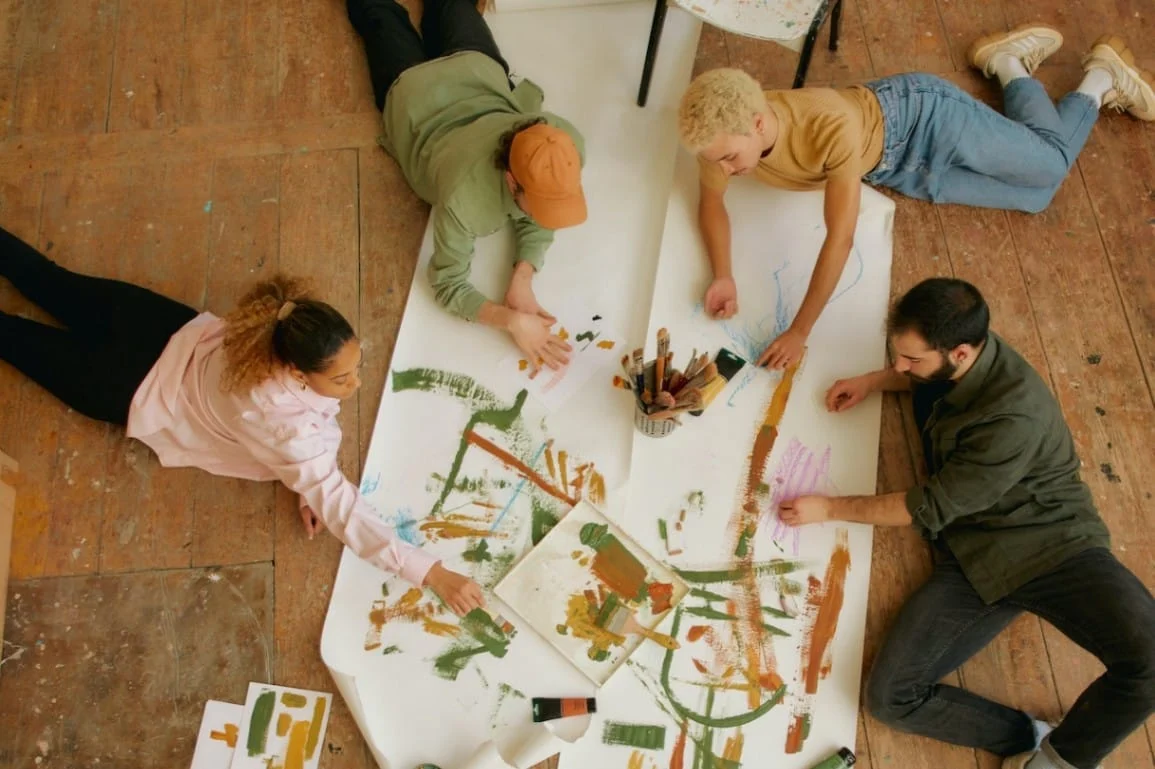
How to Make New Friends as – A Simple Guide to Meaningful Connections
Making new friends as an adult might seem harder than it was in school or college. Life gets busy with work, family, and responsibilities, and it’s not always easy to meet new people or build deep relationships. But here’s the good news: it is absolutely possible to make new friends at any age. You just need a little patience, openness, and the right mindset.
This article will guide you step by step on how to make new friends as an adult. Whether you’ve moved to a new city, changed jobs, or simply want to expand your social circle, you’ll find practical tips here that really work.
Why Making Friends as an Adult Feels Different
In childhood or college, friendships often happen naturally. You’re surrounded by peers every day, you share classes or dorms, and you have time to hang out. As an adult, things shift:
- People become more focused on careers or family.
- Free time is limited.
- Social circles can feel closed or settled.
- There may be a fear of rejection or feeling awkward.
Understanding these challenges is the first step toward changing your approach. Making friends now requires intentional effort, but that effort can lead to strong, meaningful relationships.
Step-by-Step: How to Make New Friends as an Adult
1. Start with the Right Mindset
Before anything else, remember: you’re not alone. Many adults feel lonely or disconnected. Be open to new experiences and remind yourself that it’s normal to feel nervous at first.
- Let go of the idea that making friends should be “effortless.”
- See friendship as something you can build over time.
- Stay positive and curious about people.
2. Reconnect with Existing Acquaintances
Sometimes, new friendships are just old connections waiting to be revived.
- Think about coworkers, neighbors, or classmates you once liked.
- Reach out with a simple message like, “Hey, I was thinking about you. Want to catch up sometime?”
You’d be surprised how many people are open to reconnecting.
3. Say Yes to Invitations (Even If It’s Out of Your Comfort Zone)
When someone invites you to a gathering, event, or lunch — go!
- You don’t need to be the life of the party.
- Just showing up opens doors to new conversations and connections.
The more you show up, the more people will remember you, and the easier it becomes to bond.
4. Join Groups or Clubs That Match Your Interests
One of the best ways to make friends is through shared activities.
- Join a local fitness class, book club, hiking group, or volunteer organization.
- Try apps like Meetup, Bumble BFF, or local Facebook groups.
When you regularly attend a group, you naturally start recognizing familiar faces and forming bonds.
5. Be a Good Listener and Ask Questions
Friendship is built on connection — and connection starts with genuine interest.
- Ask people about themselves: “What do you like to do on weekends?” or “What brought you to this city?”
- Listen with attention, not just waiting for your turn to talk.
- People love being heard, and they’ll remember how you made them feel.
6. Be Consistent
Friendships need nurturing to grow.
- Follow up after meeting someone new: “It was great talking to you! Want to grab coffee sometime?”
- Send a message every few weeks just to check in.
- Invite people to do things, even small things like a walk or lunch break.
Consistency builds trust and comfort over time.
7. Use Social Media Wisely
While in-person friendships are valuable, social media can help you stay connected and discover new people.
- Join local interest groups.
- Comment on people’s posts to start small conversations.
- Reach out with DMs to people you admire or feel aligned with.
Don’t just scroll — engage with intention.
8. Be Yourself and Let Friendships Happen Naturally
You don’t need to impress anyone or pretend to be someone you’re not.
- Be honest, kind, and open.
- Let people see the real you — quirks and all.
- Some friendships will click, others won’t, and that’s okay.
True friendships happen when both people feel safe and accepted.
Overcoming the Fear of Rejection
It’s normal to worry, “What if they don’t like me?” But here’s the truth:
- Everyone feels that way sometimes.
- Rejection isn’t personal — it just means a mismatch, not a failure.
- The more you try, the more comfortable you’ll get.
Think of making friends like planting seeds. Not every seed will grow, but enough of them will if you keep showing up and being kind.
Final Thoughts
Making new friends as an adult takes intentional action, but it’s deeply rewarding. Real friendships bring joy, support, and a sense of belonging. You don’t need a hundred friends — even a few close ones can make a big difference.
Be brave. Be open. And most importantly, don’t give up. Your future friends are out there, maybe even hoping to meet someone like you.
FAQs: How to Make New Friends as an Adult
- Is it normal to feel lonely as an adult even if I’m busy?
Yes, it’s very common. Being busy doesn’t always mean being socially connected. Many adults feel lonely despite full schedules. The key is to build meaningful, not just functional, connections. - What if I’m shy or introverted?
That’s okay! You don’t need to be outgoing to make friends. Focus on one-on-one interactions, and try environments where you feel comfortable. Even quiet people can build deep, lasting friendships. - How long does it take to build a real friendship?
It varies. Some connections happen quickly, others take months or years to grow. What matters most is consistency, openness, and shared experiences. - Are online friendships real?
Absolutely. Many people form deep connections online, especially through shared interests or support groups. Just make sure to keep things safe and, if possible, meet in person when comfortable. - I tried and failed — should I stop trying?
No. Friendship-building is like dating — not every attempt works out. Don’t let one or two failed tries stop you. Stay open, learn from each interaction, and try again with hope.
Sign up with your email and always get notifed of zerodevicesnet Lifestyles latest news!






